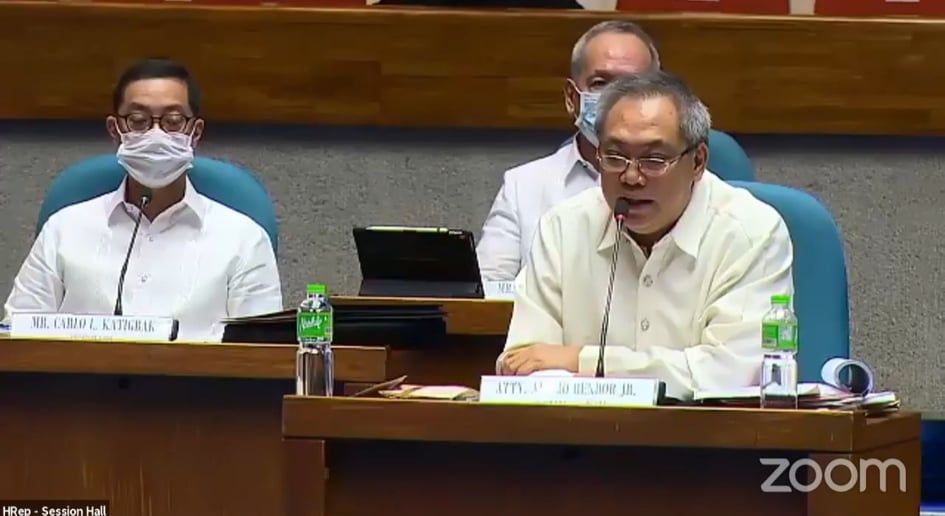AdvocatesTV • June 16, 2020
ABS-CBN defends PDRs, return of company to Lopezes

Photo Credit: House of Representatives of the Philippines Live Video
ABS-CBN lawyer Atty. Arecio Rendor said the Lopez family’s reacquisition of the broadcasting company after the fall of the Marcos regime was legal.
Rendor, at the continuation of the joint hearing of the House Committees on Legislative Franchises and on Good Government and Public Accountability, pointed out that the arbitration agreement between the Lopez family and the Corazon Aquino administration for the reacquisition was upheld by the Supreme Court in 1989.
Another arbitration agreement was agreed upon during the Ramos administration for the payment of the use of ABS-CBN’s equipment and other assets from 1986 to 1992.
“Two administrations gave imprimatur for the return of the possession of ABS-CBN of its real estate, properties, and broadcast equipment,” Rendor said.
Rendor also insisted that the Lopezes never lost their ownership of the network even during the Martial Law era. He also maintained that the arbitration case was needed because the broadcast company’s shutdown and takeover in 1972 were not in accordance with the law.
“Hindi po nawalay ang pag-aari ng Lopez family sa ABS-CBN at mga broadcast facilities and equipment even from the time when Martial Law was declared until today,” he said.
(The Lopez family’s ownership of ABS-CBN broadcast facilities and equipment was never lost from the time when Martial Law was declared until today)
ABS-CBN lawyer Cynthia Del Castillo meanwhile insisted that ABS-CBN Holdings, which owns shares of stocks of ABS-CBN Broadcasting Corporation, is a legitimate company contrary to the assertions of some lawmakers that it was created to commit fraud.
“We stand on our ground na wala pong pananagutan ang ABS-CBN Broadcasting Company na inilipat sa ABS-CBN Holdings. Hindi po 'yun ini-structure para makaiwas sa pananagutan ng ABS-CBN Broadcasting (We stand on our ground that no responsibilities of ABS-CBN Broadcasting Company were transferred to ABS-CBN Holdings. It is not structured to help evade responsibilities for ABS-CBN Broadcasting). It was not organized for purposes of fraud or perpetuating fraud for that matter,” she said.
Del Castillo explained that ABS-CBN Holdings is not the owner of all shares of stocks of ABS-CBN Broadcasting Corp.
She added that ABS-CBN Holdings is no different from other holding companies that are registered with the Securities and Exchange Commission.
“Normal po 'yan na may holding company na ang kanila lang pong business ay mag-invest sa other companies at ang kanila pong kita ay nanggagaling sa dibidendo na binibigay ng mga kompanya na kanilang ini-invest-an,” she explained.
(It is just normal to have a holding company that invests in other companies. Its earnings come from dividends from the companies it invested in)
Albay Rep. Edcel Lagman meanwhile pointed out that the Philippine Deposit Receipts (PDRs) of ABS-CBN Holdings are completely compliant with the Constitution since they are permitted by the SEC and Philippine Stock Exchange.
“The PDRs of ABS-CBN which are issued to foreign investors are completely compliant with the Constitution, and do not constitute a scheme to circumvent the constitutional requirement on 100% Filipino ownership and management of mass media enterprises,” he said.
“The criticism that PDRs achieved indirectly what the Constitution directly prohibits, is utterly baseless speculation. PDR holders are not stockholders because they have no voting rights and full beneficial ownership of a mass media corporation like ABS-CBN. Neither do they have title over the underlying shares,” he added

